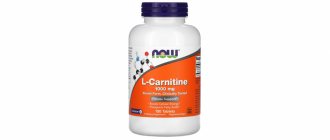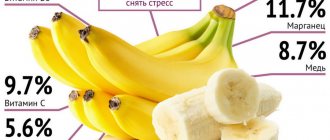Today, soybeans are widely consumed not only as a source of plant protein, but also as an ingredient in many food products.
However, soy still attracts some controversy - some praise its health benefits, while others claim that it can be harmful to the body. ()
This article reviews the evidence for the benefits and potential harms of consuming soy.
Soy - benefits and harms for the health of women and men
What is soybean and what types of products are made from it?
Soybeans are a type of legume that can be eaten whole or cooked into a variety of dishes.
Whole Soy Products
Whole soy products are the least processed. These include soybeans and edamame, which are immature (green) soybeans. Soy milk and tofu are also made from whole soybeans ().
While mature soybeans are rarely eaten whole, edamame is a favorite high-protein snack in Asian cuisines.
Soy milk is made by soaking and grinding whole soybeans, boiling them in water and then filtering out the solids. It is commonly used as an alternative to animal milk by people who cannot tolerate dairy or want to avoid milk.
Tofu is made by curdling soy milk and pressing the curd into blocks. It is a common source of plant protein in vegetarian diets.
Fermented soybean
Fermented soy products are processed using traditional methods. These include soy sauce, tempeh, miso and natto ().
Soy sauce is a liquid condiment made from fermented soybeans, roasted grains, salt water and a certain type of fungal culture.
Tempeh is a fermented soybean product that originally originated in Indonesia. Although not as popular as tofu, it is also commonly eaten as a source of protein in vegetarian diets.
Miso is a traditional Japanese seasoning made from soybeans, salt and molds.
Processed soy-based foods
Soy is used in several processed foods, including meat substitutes, yoghurts and cheeses for vegetarians and vegans.
Soy flour, textured vegetable protein, and soybean oil are used in many processed foods.
Soy supplements
Soy protein isolate is a highly processed soy derivative obtained by grinding soybeans and extracting the oil. Then the crushed soybeans are mixed with alcohol or alkaline water, heated, and the resulting soybean concentrate is dried and turned into powder ().
Soy protein isolate is available in many protein powders and is also added to many processed foods such as protein bars and shakes.
Other soy supplements include soy isoflavones, which are available in capsule form, and soy lecithin, which can be taken in capsule or powder form.
Summary:
Soybeans are used to make a variety of products, including edamame, whole soybean products, fermented soybean products, processed soybean products, and supplements.
How much soy protein can and should you eat per day?
Both vegetarians and meat eaters can eat soy products in any quantity, as long as they eat something else (if possible, you need to balance the diet and just use basic common sense).
Athletes and bodybuilders make calculations according to this scheme: approximately one and a half to two grams of protein per kilogram of body. Some additionally take about 30 grams of pure protein per day.
Nutritional value, composition and calorie content of soybeans
Soybeans are a good source of several important nutrients.
For example, one 155-gram serving of edamame contains (as a % of the recommended daily intake):
- Calorie content : 189 kcal (9%).
- Carbohydrates : 15.8 g (5%).
- Fat : 8.1 g (12%).
- Protein : 16.9 g (34%).
- Fiber : 8.1 g (32%).
- Vitamin C : 9.5 mg (16%).
- Vitamin K : 41.4 mcg (52%).
- Thiamine : 0.3 mg (21%).
- Riboflavin : 0.2 mg (14%).
- Folate : 482 mcg (121%).
- Choline : 87.3 mg.
- Calcium : 97.6 mg (10%).
- Iron : 3.5 mg (20%).
- Magnesium : 99.2 mg (25%).
- Phosphorus : 262 mg (26%).
- Potassium : 676 mg (19%).
- Zinc : 2.1 mg (14%).
- Copper : 0.5 mg (27%).
- Manganese : 1.6 mg (79%).
- Omega-3 fatty acids : 560 mg.
- Omega-6 fatty acids : 2781 mg.
Soy also contains trace amounts of vitamins and minerals such as vitamin E, niacin, vitamin B6, pantothenic acid and sodium ().
In addition, it contains prebiotic fiber and several beneficial phytochemicals, such as plant sterols and the isoflavones daidzein and genistein ().
Summary:
Soy is rich in plant protein and is a good source of many nutrients and phytochemicals.
Potential Health Benefits of Soy
The unique phytochemicals in soy give this product a number of beneficial properties.
May Help Lower Cholesterol Levels
Several studies show that soy may improve cholesterol levels, especially levels of "bad" LDL cholesterol.
In an extensive review of 35 studies, researchers found that consuming soy products lowered LDL cholesterol and total cholesterol while increasing levels of "good" HDL cholesterol. These effects were observed to a greater extent in people with high cholesterol levels ().
However, the researchers noted that soy supplements do not have the same cholesterol-lowering effects as consuming soy products ().
In another review of 38 studies, researchers noted that consuming an average of 47 grams of soy per day was associated with a 9.3% reduction in total cholesterol and a 13% reduction in LDL cholesterol ().
In addition, soy has a high fiber content, which has an additive effect on lowering cholesterol levels.
In one study, 121 adults with high cholesterol took 25 grams of soy protein with or without soy fiber for eight weeks. Soy with fiber reduced LDL cholesterol more than twice as much as soy protein alone ().
May improve fertility
Soy may improve fertility rates in women who are trying to conceive or undergoing fertility treatment.
A study of 36 women found that those who took 6 grams of black soy powder per day had higher rates of ovulation and menstrual cycles compared to those who did not take soy ().
Another study of more than 200 women who underwent in vitro fertilization (IVF) found that those who took 1,500 mg of soy phytoestrogen per day had higher implantation and pregnancy rates compared to those who did not take soy. ().
A third study found that soy had a protective effect against bisphenol A, a chemical found in plastic that can negatively affect fertility. Women who ate soy before IVF were more likely to have successful pregnancies than those who did not ().
Additionally, paternal soy consumption does not appear to have a negative impact on pregnancy rates in women undergoing IVF ().
May reduce menopause symptoms
Isoflavones are a class of phytoestrogens found naturally in soy that act as a weak estrogen in the body.
Estrogen levels decrease during menopause, leading to symptoms such as hot flashes. Since soy acts as a natural estrogen, consuming it may help reduce these symptoms.
Research supports the beneficial role of soy during menopause.
In a review of 35 studies, soy isoflavone supplements increased estradiol (estrogen) levels in postmenopausal women by 14% ().
In another review of 15 studies, postmenopausal women who took 25-100 mg of soy isoflavones per day for 3-12 months had a significant reduction in the frequency of hot flashes ().
Finally, in another review of 17 studies, women who took an average dose of 54 mg of soy isoflavones per day for 12 weeks had 20.6% fewer hot flashes and a 26.2% reduction in symptom severity compared to the start of the study ().
Summary:
Soy has been shown to lower cholesterol, improve fertility rates and reduce menopausal symptoms.
Reasons for switching your baby to soy formula may be:
1. Allergy to milk protein
. An allergic reaction is the body’s response to the ingestion of an allergen-irritant, the role of which in this situation is played by milk protein. According to WHO statistics, it affects 5 to 8% of newborns worldwide. The only treatment option is complete abstinence from consuming products containing milk protein.
2. Lactose intolerance (or lactase intolerance)
. Lactose (milk sugar) is a disaccharide of β-D-galactose and β-D-glucose found in milk. For its proper digestion (the body must have a sufficient content of lactase - an enzyme that breaks down lactose into glucose, which is the main source of energy for all living organisms on the planet, and galactase, which is involved in many biochemical processes, including the formation of the central nervous system and retina eyes. In the absence or deficiency of the lactase enzyme, the baby develops lactose intolerance. Lactase deficiency can be either congenital (primary) or acquired (secondary). The risk of primary lactase deficiency is highest in premature and full-term, but developmentally delayed babies, since The activity of the lactase enzyme in the fetus begins to increase from about the 34th week of pregnancy and reaches its maximum level by weeks 37-40. The development of secondary lactase deficiency is facilitated by intestinal diseases caused by infection or allergic inflammation.
3. Galactosemia
– a severe congenital hereditary disease associated with a mutation of the gene responsible for the synthesis of the enzyme galactose-1-phosphate uridyl transferase. Causes metabolic disorders by preventing the conversion of galactose contained in lactose into glucose. Accumulating in the blood and tissues, galactose and its derivative have a toxic effect on the central nervous system, liver, vision and other important organs. In the first days and weeks of life, the baby develops jaundice, liver enlargement, convulsions, nystagmus and muscle hypotension. In the future, in the absence of timely treatment, a lag in mental and physical development appears, mental retardation and cataracts develop. One of the key measures of therapeutic therapy for galactosemia is the exclusion of dairy products from the baby’s diet and replacing them with dairy-free ones, including those based on soy protein.
4. Intestinal infections of various etiologies (viral, bacterial diarrhea)
. Frequent bowel movements lead to dehydration, disturbances in water-salt balance and metabolism. Against this background, the introduction of low-lactose and soy mixtures into the diet helps restore intestinal microflora and normalize stool. Formulas based on soy protein have a pronounced strengthening effect and are recommended for use if a child is prone to diarrhea. The isoflavones (phytoestrogens) contained in the composition are actively involved in many metabolic processes and have some antiviral effect.
5. Functional disorders of the gastrointestinal tract (colic, bloating, reflux, inflammation of the intestinal mucosa, etc.)
Gastrointestinal dysfunction is a fairly common phenomenon in newborns, associated with the immaturity of internal organs and their gradual adaptation to the outside world. The baby’s body does not yet produce a sufficient amount of enzymes, and a weak muscular system cannot always provide sufficient peristalsis of the stomach and intestines. In these cases, special medicinal mixtures help to cope with digestive problems. Depending on the symptoms and the reasons that caused them, the infant’s diet includes milk formulas with a reduced content of milk protein (which speeds up the digestion of food), mixtures containing prebiotics and probiotics, as well as dairy-free formulas (if digestive problems are associated with poor tolerance to milk protein and lactose).
6. Celiac disease
is a rare genetically determined disorder of the small intestine, associated with a deficiency of enzymes that break down the gluten peptide, and as a result, causing digestive disorders, because the villi of the small intestine are damaged by gluten, which is found in grain products and, accordingly, cow's milk. Occurs in 1 in 30,000 newborns. When diagnosing this disease, gluten-free formulas are used for feeding, which include, among others, Humana SL.
Possible health risks of soy
Although soy has several beneficial properties, its effect on other diseases remains unclear.
Effect on breast cancer unknown
Soy contains isoflavones, which act as estrogen in the body. Since many breast cancers require estrogens to grow, it would be reasonable to assume that soy may increase the risk of developing breast cancer. However, most studies have not confirmed this.
A review of 35 studies that examined the association of soy isoflavone intake with breast cancer incidence found that higher soy intake reduced the risk of breast cancer in pre- and postmenopausal women.
One study found that soy consumption had no effect on the risk of breast cancer ().
This difference may be due to the different types of soy consumed in Asia compared to the Western diet. Soybeans are typically consumed whole or fermented in Asian countries, whereas in Western countries soybeans are mostly processed or taken in supplement form.
A study on rats fed fermented soy milk found that the rats were 20% less likely to develop breast cancer than rats not fed this type of food. Rats fed soy isoflavones were 10-13% less likely to develop mammary cancer ().
Therefore, fermented soy may be more protective against breast cancer than soy supplements.
In addition, soy is associated with longer survival after breast cancer diagnosis.
In a review of five long-term studies, women who consumed soy after diagnosis were 21% less likely to have cancer recur and 15% less likely to die than women who avoided soy ().
Effects on thyroid function
Soy contains goitrogens, substances that can negatively affect the thyroid gland by blocking iodine absorption.
Test tube and animal studies have shown that soy isoflavones block the production of thyroid hormones (, ).
Researchers have not yet examined the effects of soy on thyroid function in humans, but some studies suggest it may not have a significant effect.
In a review of 14 studies, soy had little effect on thyroid function, and the authors concluded that people with hypothyroidism do not need to avoid soy as long as their iodine intake is adequate ().
Additionally, two randomized trials in postmenopausal women found that daily intake of up to 120 mg of soy isoflavones had no significant effect on thyroid hormone production (, ).
Effect on male sex hormones
Because soy contains phytoestrogens, men may be concerned about including this product in their diet.
However, research does not show that soy negatively affects testosterone production in men.
A review of 15 studies in men found that consumption of soy products, soy protein powders (up to 70 g per day), or soy isoflavone supplements (240 mg per day) did not affect free testosterone levels or total testosterone levels ().
Moreover, soy may reduce the risk of prostate cancer in men.
In a review of 30 studies, high soy consumption was associated with a significantly lower risk of developing this disease ().
Most soy is GMO
More than 90% of soybeans produced in the United States are genetically modified ().
There is much debate about the safety of genetically modified organisms (GMOs). More long-term scientific studies are needed to determine their effects on humans and in what quantities they are safe ().
In addition, GMOs are bred to resist the herbicide glyphosate.
Glyphosate may have adverse health effects, including an increased risk of cancer and higher rates of birth defects (,).
Some GMO soy products have been found to contain glyphosate residues and have lower nutrient levels compared to organic soybeans ().
So to avoid GMOs and glyphosate exposure, stick to organic soy.
Summary:
Animal studies show that soy negatively affects breast cancer, thyroid function and male hormones, but human studies tell a different story. Most soy is genetically modified, so if you want to avoid possible harm, you should eat organic soy.
Introduction and background information
By far, soy is the most controversial plant food. Soy products are amazingly diverse—manufacturers have found ways to turn them into soy milk, veggie burgers, hot dogs, ice cream, yogurt and more. Because soy products are so widely consumed, some researchers have raised questions about how safe they are.
In Russia, starting from the 90s of the 20th century, anti-propaganda of soy and soy nutrition intensified, which became especially aggravated under the guise of the fight against genetic modification. There are a number of common claims about soy: for example, that it negatively affects hormonal levels, provokes the development of cancerous tumors, and negatively affects men's health.
| In fact, soy is one of the few sources of complete protein and contains all the essential amino acids. |
In addition, soybeans are rich in vitamins (B1, B2, B3, B5, B6, B9, C), minerals (calcium, phosphate, magnesium, magnesium, potassium and zinc), Omega-3 and Omega-6 essential fatty acids and phytonutrients (substances that benefit the body and are not related to energy value).
Despite all the health benefits of soy, there are a lot of myths and misinformation surrounding soy regarding the “dangers” that lie in wait for people who eat soy. Between 1990 and 2010, more than 10,000 journal articles on soybeans were published. A large percentage of these were based on animal experiments, which limits the ability to draw conclusions regarding its effects on human physiology due to the different ways that isoflavones (a type of phytonutrient) in soy are absorbed and the fact that the amount of isoflavones given to animals was often much higher than that consumed by any Western man.
| Isoflavones are natural compounds found in certain plants, such as soybeans and red clover. These substances belong to the group of phytoestrogens: their structure is similar to human estrogens, but they are less active. Isoflavones are a natural part of the human diet, especially in countries with high soy consumption. In addition to their well-known effectiveness in combating menopausal syndrome in women (osteoporosis, hot flashes and night sweats), isoflavones have metabolic and anticarcinogenic properties, as well as beneficial effects on the cardiovascular system and skin. (Source) |
This extensive research effort has made soy one of the most studied foods, but at the same time has led to the fact that, due to chance or insufficiently designed experiment, some may determine soy to be harmful (or beneficial) when in fact the conclusion would not be objective.
A large number of studies allow those interested in forming a negative assessment of soy to simply take a piece out of context, while the bulk of the same research contains a different opinion. Of course, the same can be done in favor of soybeans. That's why it's important to conduct a comprehensive review of the research, which we've done below for the most significant controversies surrounding the potential harms of soy products.
Summarize
- Soy has several health benefits such as improving cholesterol levels, fertility rates and relieving menopause symptoms.
- However, it remains a controversial product as some existing animal studies suggest that it may be linked to breast cancer, poor thyroid function and it may interfere with male hormones.
- However, human studies show different results.
- Overall, the benefits of including soy in your diet likely outweigh any potential harm, so you can safely consume whole or fermented soy products.
The article was prepared by experts for informational purposes only. It should not be used as a guide for treating medical conditions and is not a substitute for professional medical advice, diagnosis, or treatment. In case of illness or any symptoms, you should always consult a doctor and not self-medicate.
Tags: Soy
About the author: Alexander Fedorov
Candidate of Biological Sciences, biologist, nutrition expert. Graduated from Stavropol State University with a degree in Biology at the Faculty of Biology and Chemistry.
- Related Posts
- Are fenugreek seeds good for hair?
- Can peanut butter cause weight gain?
- Are beans a vegetable or not?
« Previous entry











